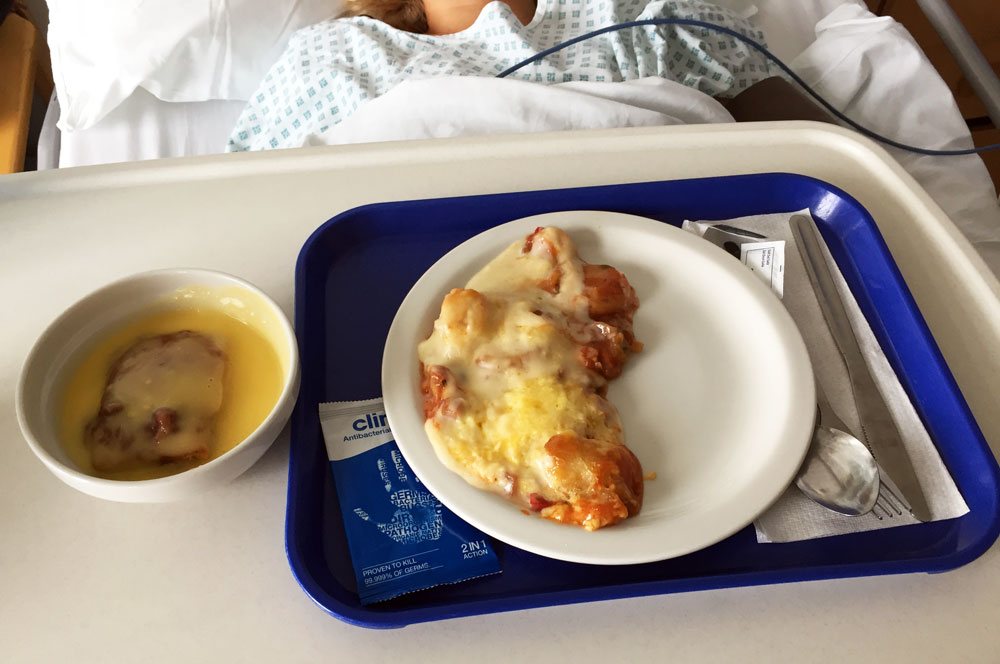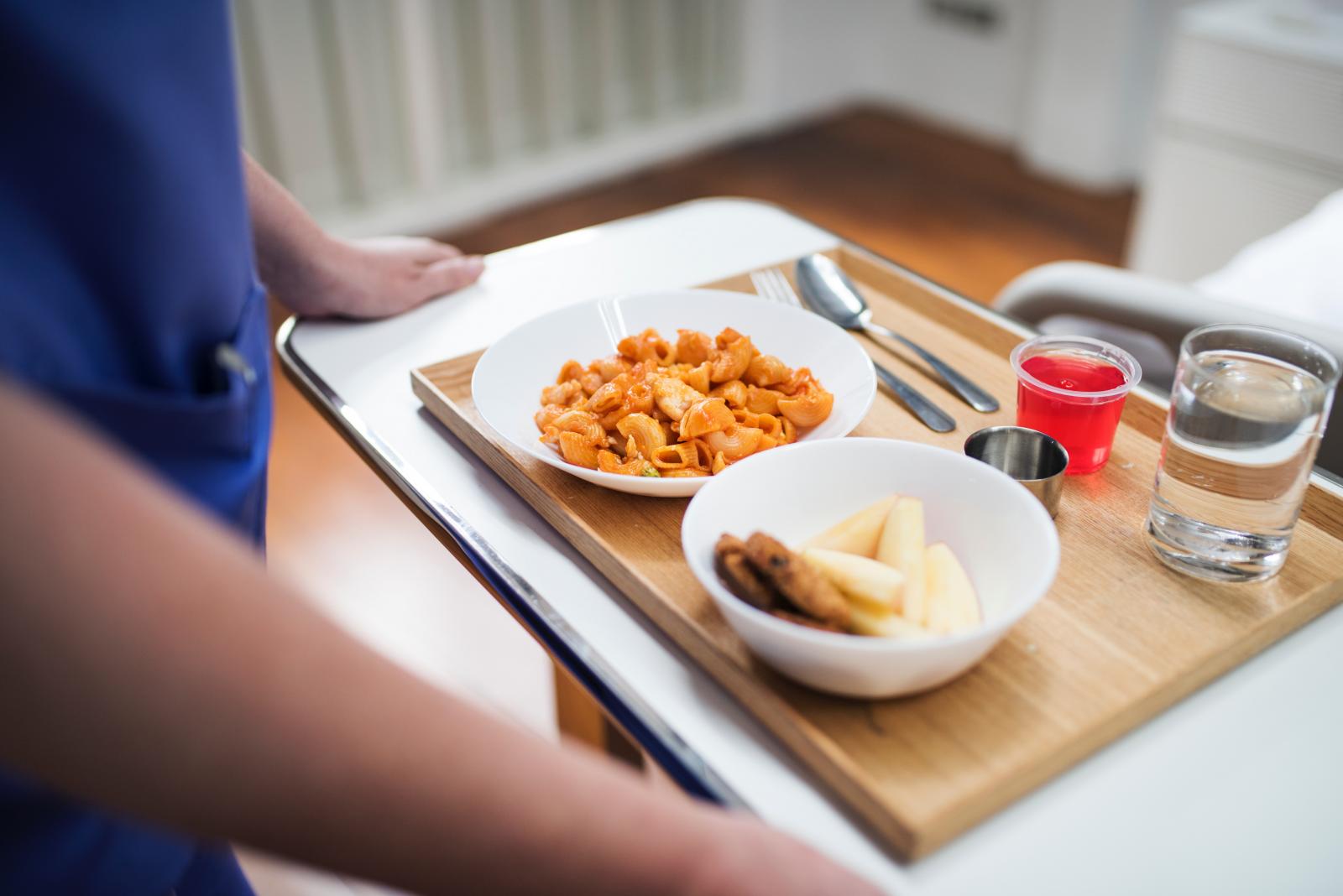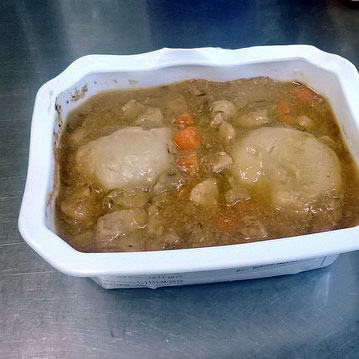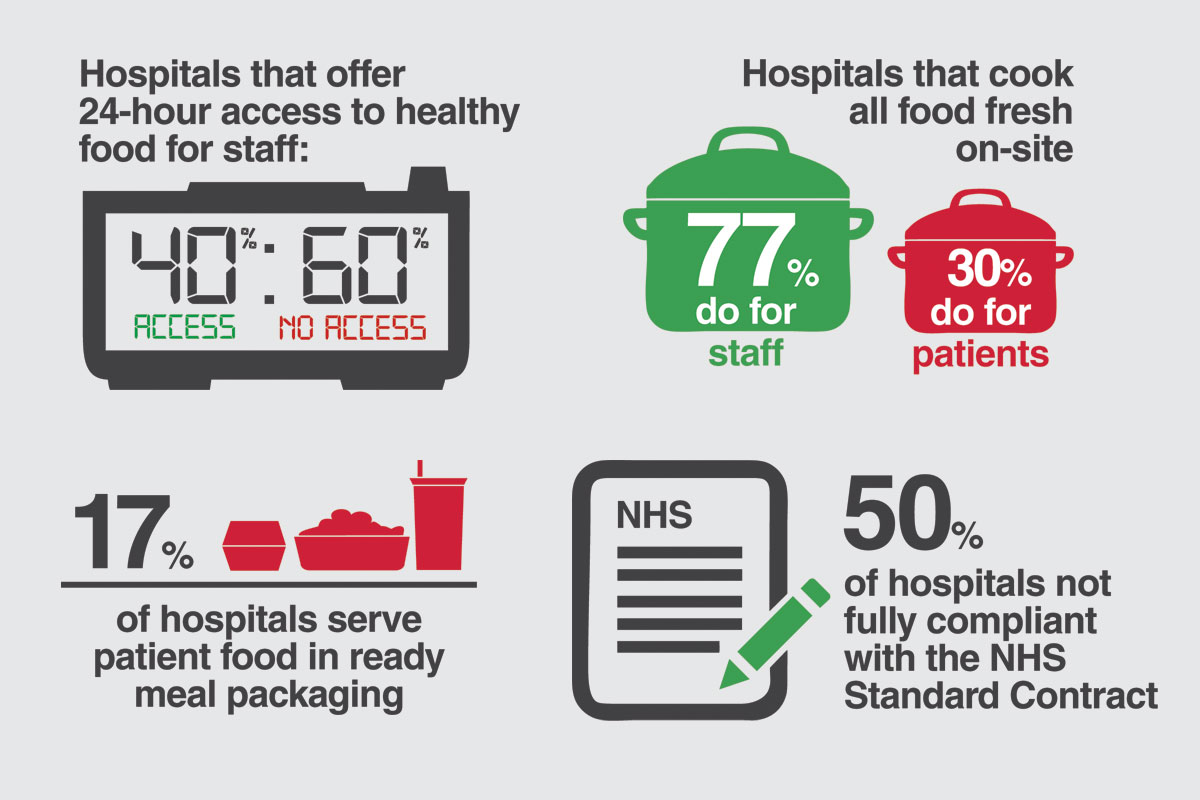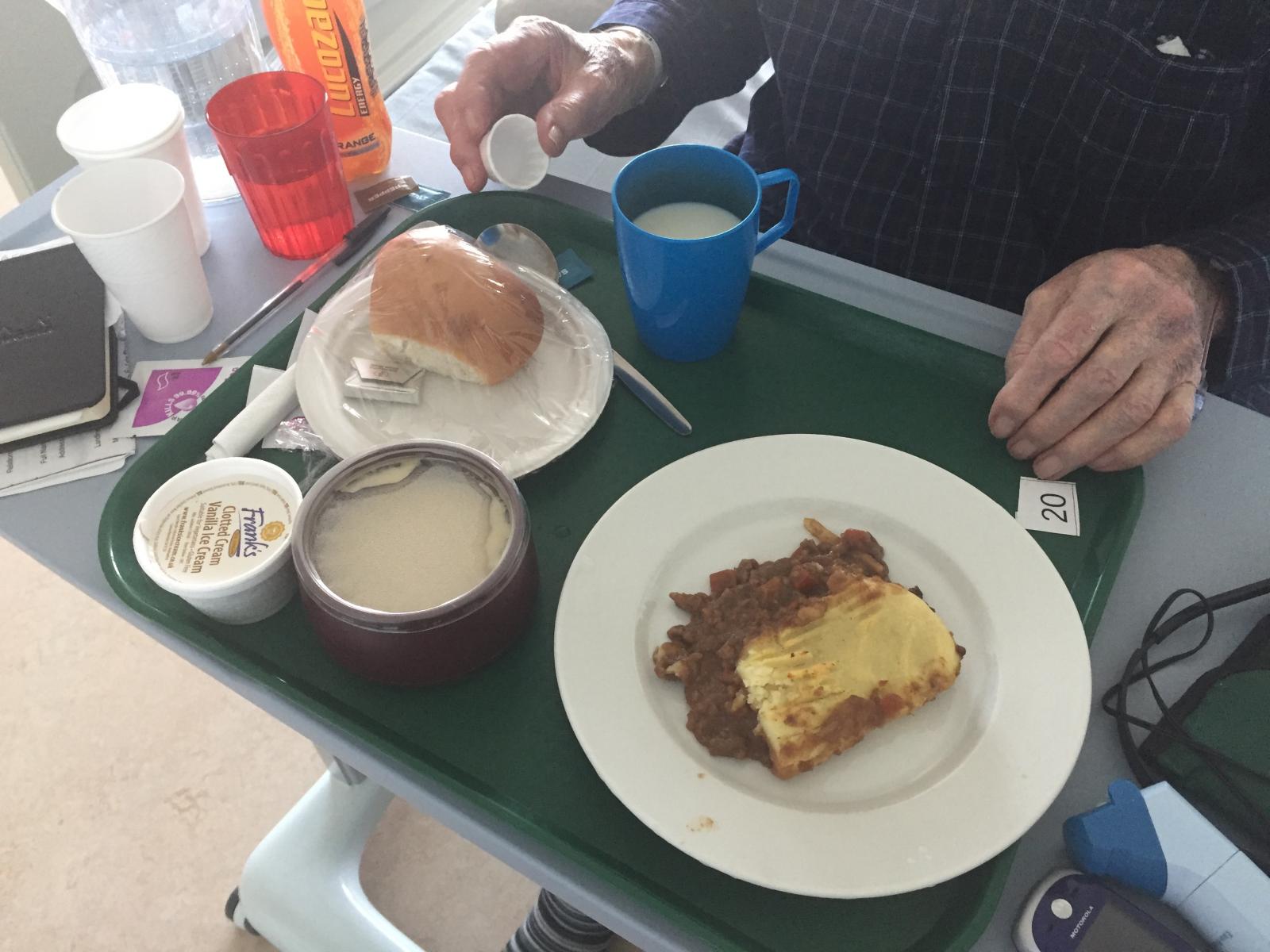'You should be ashamed': TV chef blasts Health Secretary
- TV chef James Martin took to Twitter to speak out against Jeremy Hunt
- Posted link to MailOnline NHS food photos, saying 'You should be ashamed'
- His comments come as government advisor Alex Jackson called for new law
- Mr Jackson wants legislation which binds hospitals to food standards
- Report into food offered at NHS hospitals is to be published by tomorrow
- Department of Health to write new rules into existing NHS contracts
- More MailOnline readers shared shocking images of meals served to patients
Celebrity TV chef James Martin has blasted the Health Secretary over pitiful meals being served in NHS hospitals as he backed MailOnline's campaign to improve food given to patients.
Mr Martin, a hospital food standards campaigner, took to Twitter to speak out against Jeremy Hunt after it emerged that the Department of Health said it would not consider introducing legislation to legally enforce food standards in NHS hospitals.’
'You should be ashamed.' He went on: 'The majority of hospitals ruin it for the few that are doing well. 'That hurts the team in them #OperationHospitalFood.
'I've tried five years to speak to someone in government and the response is they're 'too busy' #OperationHospitalFood'
His comments come as a former member of a government panel investigating hospital food said the only way to improve patient meals throughout the NHS is to enforce new standards by law.
Alex Jackson resigned from the Hospital Food Standards Panel after being told the Department of Health would not consider putting forward legislation regardless of the outcomes of a report into the standard of hospital food.
On the eve the report's publication, the campaigner has slammed the ‘infuriating’ system which has placed the standards of prison meals under closer scrutiny.
‘Restaurants are held to a legal standard and are shut down if they don’t comply – and these are places where people are choosing to eat,' said Mr Jackson of the Campaign for Better Hospital Food.
‘By not creating legislation specifically for this, the government has set about finding a solution which appears to be what we want but in practice, it isn't.’
Meanwhile, more MailOnline readers shared photographs of substandard meals at facilities across Britain.
In 2012, Mr Jackson supported a bill proposed by Baroness Cumberledge in the Houses of Parliament to legally bind hospitals to meet food standards.
After it was rejected, the Department of Health created the panel to investigate the situation across NHS hospitals. It was to report its findings to Dr Daniel Poulter, the Parliamentary Under Secretary of State at the Department of Health, for his consideration. Its findings and recommendations will be published tomorrow.
However upon the panel’s construction, Dr Poulter told its members no matter the outcome of their research, the department would not consider putting forward any legislation to enforce standards.
‘What I wanted and what I hoped to be the case was that we would be allowed to consider a number of things including having new legislation put through parliament,' added Mr Jackson.
Critics have slammed hospitals' failure to improve food standards despite other NHS initiatives in the past.
'At the first meeting Dan Poulter gave a spiel and I said: “It seems to me you're not allowing us to advocate new legislation if we want it.”
‘He said that was one thing they would not consider.
'I thought at that point that our hands were tied.’
Instead, the Department of Health will introduce new rules in existing NHS contracts to map out acceptable standards. A breach of the new rules will be considered a breach of contract and therefore considered legally binding, say officials.
But with the same NHS-governed bodies charged with monitoring and reporting failure to adhere to the rules the situation may never improve, says Mr Jackson.
‘All of these commissions are self-reported and we have decades of evidence to suggest that that doesn’t work.
‘What we need is a similar system to the school meals standards law which is monitored by an independent body.
‘But what they’ve proposed is tinkering with commission contracts and hoping for the best.
‘We’ve been doing that for years and it hasn’t approved at all. There have been hundreds of initiatives that haven’t worked.
‘There is zero connection with patients as well.
‘The government is aware that there is public outcry about hospital food and there’s also public outcry that there's nothing being done.
‘These recommendations have been drawn up by members of the panel in a dark room. I was worried about that from the outset, they’ll not be seen by patients.
‘There’s no public consultation. It would be an issue of public ownership putting standards into law.
‘Let’s put it in the hands of elected members of parliament, not officials.
‘What they’ve done is go through a lengthy bureaucratic process of not achieving the goal.’
Mr Jackson added he was concerned over those appointed to the panel, with many members involved in supplying food to hospitals.
‘These guys are suppliers and the public sector is the consumer. In any negotiation, when does the supplier tell the customer what to do?’
Ruthe Isden of Age UK, whose chairman is at the head of the panel, confirmed they were told the report would not result in legislation from the outset.
‘That was the decision we were working to throughout, that there would be an opportunity to deal with it in a different way than having to go through the process of putting a bill through parliament.
‘We really hope people will move forward and take it (the report) seriously but a range of checks and balances are being made.’
Asked when NHS staff will be made aware of any changes, a Department of Health spokesman said the new contracts will not be completed and distributed until April next year.
A Department of Health spokesman said: 'Legislation is a red herring – there are other ways that we can introduce mandatory food standards that will be quicker for the NHS to act on and more flexible for the future.
'We are determined to see better hospital food across the country and we’ll say more about our plans for this tomorrow.'
As pressure on the government to improve hospital meals grows, a cardiac patient has revealed being fed salty food in hospital, to the concern of a dietitian.
Ben Bull was admitted to Brighton Royal Sussex County Hospital in December with atrial fibrillation after collapsing.
But throughout his care he was fed meals heavy in salt and sodium – a ‘concerning’ decision says Catherine Collins of the British Dietetic Association.
‘If that’s what he was given without a choice then I would be concerned.
‘I wouldn't want highly salted (foods for a patient of this condition.) He needs a low salt diet, if it's atrial fibrillation causing right heart failure.
‘Baked beans are high in salt, the portions can be small so it wouldn't be a major issue, but if he had right heart failure we should be reducing his salt intake.
‘Cheese is high in salt as well. It may be he was suffering from a lack of available choice but that isn’t acceptable.
‘The white bread sandwich is not something I would want a patient of that condition to eat’.
Mr Bull was admitted to hospital after collapsing suddenly in December. The father-of-one learned he had been suffering a systemic right heart failure since childhood, though he had never known.
Throughout his time at the hospital Mr Bull said meals were consistently inadequate and that he eventually relied on his family to bring him food.
‘My family had to bring food in as by the pictures, the food was horrendous.
‘I didn't argue as the woman serving spoke little English and the only time I said anything she shrugged it off.’
Among the food he was given was a sponge raspberry pudding, baked potato, and a cheese sandwich made on white bread.
A portion of fish and chips, covered in salt, and a bowl of tomato and cheese pasta with ‘uncooked’ meatballs were also served.
Mr Bull said he would been more forthright to complain about the quality of his meals if there were stronger regulations in place.
‘If there were food standards in place I definitely would have said something, if you were served that in a restaurant, let alone a greasy spoon, you would say something or even refuse to pay, even my school dinners were better quality.
‘As it stands the servers rush in and out again, most of the time not even mentioning that the plate is as full as when they left it, I think even the people serving the food are aware of the quality.’
Daily Mail
28 August 2014
Published Thursday 28 August 2014
Better Hospital Food: The campaign represents a coalition of organisations calling on the Westminster government to introduce mandatory nutritional, environmental and ethical standards for food served to patients in NHS hospitals in England.
